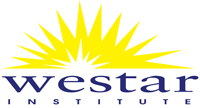
Billings, Montana
March 29–30, 2019
What if the New Testament and related texts were not written to start a new religion but to address dislocations of populations, violence, and loss within the Roman Empire? Inspired by 21st-century studies, scholars from Westar’s Christianity Seminar will revisit this literature as texts expressing diverse elements of protest and liberation. What new interpretations of popular “Christian” texts result from this approach? At the same time, this seminar will address similar conditions and renewal in Native American settings. Here too new studies and creativity are promising important and fundamental shifts for the dilemma of American peoples.

Chebon Kernell (M.Div, Phillips Theological Seminary) is the Executive Secretary of Native American and Indigenous Ministries, for the General Board of Global Ministries of the United Methodist Church. In this role, Rev. Kernell raises awareness, increases advocacy, and supports equality among Native American and Indigenous communities. He is an enrolled member of the Seminole Nation of Oklahoma and is of Muscogee Creek heritage.

Hal Taussig (Ph.D. The Union Institute) is a recently-retired Professor of New Testament at Union Theological Seminary in New York. He lectures around the country and world. The editor of the award-winning A New New Testament (2013), United Methodist minister, and author of fourteen books, his mediography includes The New York Times, Time Magazine, The Daily Show, People Magazine, Newsweek Magazine, National Public Radio, and many more.
DOWNLOAD AN EVENT FLIER
A PDF will open in a new window with event details including schedule and contact information.
Program Details
Displacement, Loss, and Reinvention
Chebon Kernell and Hal Taussig
How the trauma of displacement and forced migration in the Roman empire and today spark resistance and creative identity formation. This joint lecture looks at the cases of native peoples and early Christ people.
Understanding Social Crises in Early Christ Movements
Christianity did not arise as a single, monolithic movement. It arose in diverse Christ groups and movements experiencing different kinds of economic pressure, state violence, social displacement, and forced re-settlements. Recognizing this complex picture brings surprising insights to our understanding of emerging Christ movements of the first two centuries in the ancient world and emerging pluralistic societies.
Stolen Lands: The Trauma of Displacement and Forced Migration
Colonial history in America often overlooks oral stories among indigenous cultures that respond to the forced removal processes. Consequently, the deep trauma of this experience is silenced, even ignored. Yet, the silencing of forced removal stories in contemporary American stands in contrast to the "un-silencing" historical stories in the academic study of history today. Why does popular American culture remain comfortable with "historical silencing?"
Reclaiming Peoplehood in the First and 21st Centuries
Chebon Kernell and Hal Taussig
First and Second Century Mediterranean Christ-communities and 21st-century native American communities share common challenges. Each experienced forms of violence, migration, and forced refugee status, but also expressed spiritual resistance and renewal. Each re-imagined collective sense of belonging and sought (and seek) to recapture place in a big world. What spiritual movements are alive today that react to loss, violence, state cruelty and trauma with a revived emphasis on self-determination and freedom?
Discussion (Q & A)
Chebon Kernell and Hal Taussig
Chebron Kernell and Hal Taussig will hold conversation and field questions about the the topics at hand and our response today.
Sponsor
Billings First Congregational Church (UCC)
Event Location
Billings First Congregational Church (UCC)
310 North 27th Street
Billings, MT 59101
Local Contact and Information
Mike Mulberry
revmikemul@firstchurchbillings.org
(406) 245-6477
Fees
All Sessions
- Individual Rate $75
- Pre-registration Rate (by March 15) $60
- Additional Family Members $50
Single Sessions
- Friday Evening Lecture $20
- Saturday Morning Workshop $30
- Saturday Afternoon Workshop $30
Refunds are available until two weeks before the event if requested in writing, minus a $10 administrative fee. No refunds will be given after that date.
REGISTER BY MAIL
A PDF will open in a new window with a printable registration form.
